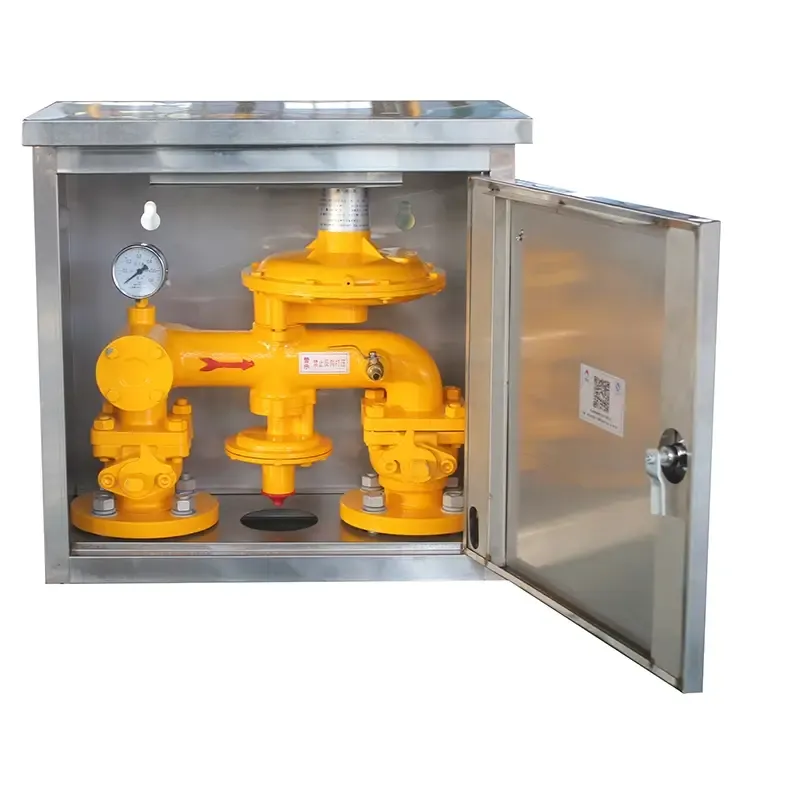
Nov . 28, 2024 09:40
Back to list
Gas Pressure Regulator System for Efficient Control and Optimization
The Role of Gas Pressure Regulators in Modern Systems
Gas pressure regulators play a crucial role in various industries and applications, ensuring the safe and efficient use of gas in numerous settings. Understanding the functions, types, and significance of these devices can provide valuable insights into their impact on industrial processes, residential heating, and even culinary operations.
At its core, a gas pressure regulator is a mechanical device that controls the pressure of gas flowing from a source to end-users or appliances. This regulation is essential because gases, such as natural gas or propane, are typically supplied at high pressures that could be hazardous or unsuitable for direct use. By reducing and stabilizing the pressure, regulators ensure that the gas delivery is within safe and optimal levels for equipment operation.
How Gas Pressure Regulators Work
The fundamental operation of a gas pressure regulator involves a pressure-sensing mechanism and a control valve. The regulator senses the downstream pressure—this is the pressure at which the gas enters the application or appliance. If this pressure deviates from the desired setting, the control valve adjusts accordingly, either opening or closing to regulate the flow of gas. This feedback mechanism ensures a constant output pressure regardless of variations in input pressure or demand.
.
Applications Across Industries
منظم ضغط الغاز

Gas pressure regulators find applications in numerous sectors, each benefiting from the precise control of gas pressure. In the residential sector, they are critical for safe gas supply to heating systems and cooking appliances. A malfunctioning regulator can lead to insufficient heating or, worse, gas leaks, posing safety hazards.
In industrial settings, such as chemical manufacturing or metal fabrication, regulators ensure that gas pressures remain stable during production processes. This stability is vital for the efficiency of operations and the quality of the end products. Furthermore, in the medical field, gas pressure regulators control the delivery of gases such as oxygen and nitrous oxide, ensuring patient safety and effective treatment.
Additionally, the culinary world employs gas pressure regulators in commercial kitchens, where precision in cooking temperatures can greatly affect the quality of food. These regulators help maintain consistent flame levels on gas stoves and ovens, contributing to better cooking outcomes.
The Importance of Regular Maintenance
While gas pressure regulators are designed for durability and reliability, regular maintenance is essential for safe and effective operation. Users should inspect regulators periodically for signs of wear, leaks, or other issues. Routine checks ensure that pressure settings remain accurate and that the devices function seamlessly.
In conclusion, gas pressure regulators are indispensable devices that ensure the safe and efficient use of gas across various applications. Their ability to control and stabilize gas pressure not only enhances operational efficiency but also safeguards users from potential hazards. As technologies evolve and industries continue to innovate, the role of gas pressure regulators will undoubtedly expand, further solidifying their importance in modern systems. Whether in households, industries, or specialist applications, these regulators stand as silent guardians of safety and efficiency in gas utilization.
Latest news
-
Safety Valve Spring-Loaded Design Overpressure ProtectionNewsJul.25,2025
-
Precision Voltage Regulator AC5 Accuracy Grade PerformanceNewsJul.25,2025
-
Natural Gas Pressure Regulating Skid Industrial Pipeline ApplicationsNewsJul.25,2025
-
Natural Gas Filter Stainless Steel Mesh Element DesignNewsJul.25,2025
-
Gas Pressure Regulator Valve Direct-Acting Spring-Loaded DesignNewsJul.25,2025
-
Decompression Equipment Multi-Stage Heat Exchange System DesignNewsJul.25,2025

